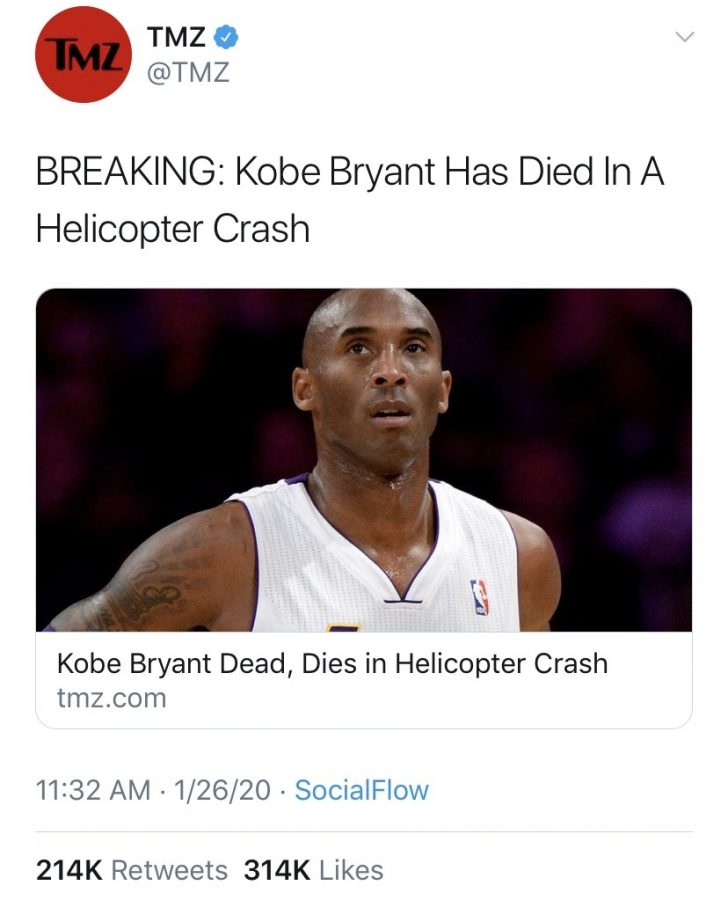Some Bad News
Twitter via Northwest Public Broadcasting
Kobe Bryant’s death was published by TMZ minutes after the helicopter crash, causing many to question the ethics of such rapid reporting.
February 16, 2020
When Kobe Bryant passed away on January 26, the shock and grief felt by the beloved basketball superstar’s death was exacerbated by sheer confusion regarding the details of his tragedy due to the fault of failed news reporting. The inaccuracies provided by news outlets is not unique to only Bryant’s death, however, and reflects an overall fall of the news.
News of Bryant’s sudden death emerged as quickly as the alleged details were discovered by a variety of news outlets, resulting in his story constantly updating. TMZ was the first to break the news minutes after the fatal helicopter crash occurred, before even Bryant’s wife, Vanessa, was notified. According to the Los Angeles Times, the LA county sheriff even voiced his disapproval at TMZ for publishing news about the accident before law enforcement officially identified all the victims.
The instantaneousness of TMZ, an infamous celebrity gossip tabloid, brings into question the ethics of quick coverage over moral obligation to Bryant and the other victims’ families. In the modern world of technology which renders paper newspapers increasingly irrelevant, news outlets are constantly fighting for ways to survive. The rapid nature of social media further enables news to be passed around within a matter of seconds, forcing publishing companies to maintain fresh, relevant news at all times.
From a financial and reputational perspective, TMZ’s rapid reporting reflects the urgency of news outlets to be the first to publish stories in order to draw readers and subscriptions. Considering the weight of the tragedy, however, Juliana Kim (12) believes that “it was insensitive to publish the news so quickly. Imagine being Vanessa or Kobe’s other two daughters and finding out that your husband or father and daughter or sister passed away through Twitter.” Thousands of others agree with this statement, as a petition against TMZ was created on change.org.
Concerns about TMZ’s instant reporting aside, details regarding Bryant’s death came rapidly and, as a result, inaccurately. In a rush to be the first to release new details to the public, several news companies compromised accurate and thoughtful news reporting. According to the Washington Post, a news reporter from ABC falsely claimed that all four of Bryant’s daughters were killed alongside their father, causing further panic and grief. When the statements were proven to be false, the reporter was fired. However, the damage was already done–within seconds of the ABC reporter’s Tweet, thousands of Tweets echoing the false news followed.
The news has fought and continues to fight a constant battle to retain its relevancy in today’s technologically driven world. In their desperation to publish quickly, news outlets sacrificed their accuracy, furthering their decline. Kobe Bryant’s death warrants grief, shock, and even despair. However, it should not have been accompanied by confusion, panic, and unnecessary additional grief. In this way, the news failed Kobe Bryant during his final moments.























